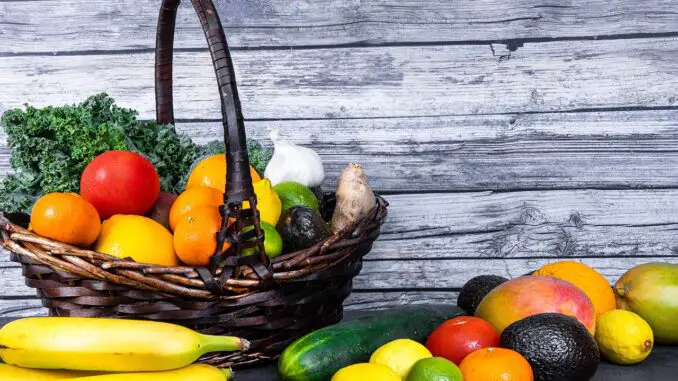
Fatty liver is a condition that affects millions of people around the world and is caused by an accumulation of fat in the liver. It can be a symptom of many diseases including obesity, diabetes, and alcohol abuse. Fortunately, a healthy diet is one of the best ways to prevent or even reverse fatty liver. Eating fruits and vegetables can help reduce inflammation in the liver and remove excess fat buildup. In particular, certain fruits have been proven to be especially beneficial for fatty liver. In this article, we’ll discuss some of the best fruits for fatty liver and how you can incorporate them into your diet.
Understanding Fatty Liver Disease: Causes and Symptoms
Fatty liver is a condition in which fat accumulates in the liver cells. This can be due to many reasons, including alcohol abuse, obesity, and diabetes. Fatty liver can lead to serious health problems, such as cirrhosis (scarring of the liver) and liver cancer.
There are two types of fatty liver disease: non-alcoholic fatty liver disease (NAFLD) and alcoholic fatty liver disease (AFLD). NAFLD is the most common type of fatty liver disease, and it can occur in people of all ages. AFLD is more common in middle-aged adults who drink heavily.
Symptoms of fatty liver disease may include fatigue, weight loss, nausea, and pain in the upper right abdomen. In some cases, there may be no symptoms at all. If left untreated, fatty liver disease can progress to cirrhosis and Liver failure.
If you think you might have fatty liver disease, it’s important to see your doctor for a proper diagnosis. Treatment for fatty liver disease typically focuses on lifestyle changes, such as losing weight, eating a healthy diet, and avoiding alcohol. In some cases, medication may also be necessary.
How is Fatty Liver diagnosed?
Fatty liver is most commonly diagnosed through a combination of physical examination and medical imaging (1). Blood tests may also be ordered to check for elevated liver enzymes, which can be indicative of liver damage. In some cases, a biopsy may be performed to confirm the diagnosis.
Can Fatty Liver be prevented?
There is no one answer to this question as there are many different factors that can contribute to the development of a fatty liver. However, some lifestyle changes may help to prevent or reduce the severity of fatty liver. These include maintaining a healthy weight, eating a balanced diet, exercising regularly, and avoiding excessive alcohol consumption. If you have any other risk factors for developing fatty liver (such as diabetes or high cholesterol), it is important to work with your healthcare team to manage these conditions.

The Importance of Diet in Managing Fatty Liver
Maintaining a healthy diet is important for managing any chronic condition, and that includes fatty liver. Fatty liver occurs when there is an accumulation of fat in the liver cells. This can be caused by obesity, diabetes, high cholesterol, or other conditions. While there is no specific diet for fatty liver, there are certain foods that should be avoided to help manage the condition.
Foods high in saturated fats and trans fats should be avoided as they can worsen fatty liver. Red meat and processed meats are especially high in saturated fats and should be limited. Other foods to avoid include fried foods, full-fat dairy products, and refined carbohydrates such as white bread and pastries. Instead, focus on eating plenty of fruits, vegetables, lean protein, whole grains, and healthy fats such as olive oil (2) . These nutritious foods will help keep your liver healthy and prevent the progression of fatty liver disease.
Top 5 Fruits for Fatty Liver: How They Can Help
Avocados
Avocados are a good source of healthy fats. avocados are also rich sources of vitamins, minerals, and antioxidants, which can help to reduce inflammation and oxidative stress in the liver.
Research suggests that consuming avocados regularly can help to improve liver health in individuals with non-alcoholic fatty liver disease (NAFLD), a common type of fatty liver disease. A 2020 study published in the Journal of Clinical Lipidology found that consuming one avocado per day for 12 weeks improved liver health in people with NAFLD, as measured by reductions in liver fat and improved liver function tests (3).
It’s important to note that while avocados can be beneficial for liver health, they should be consumed as part of a balanced diet that includes a variety of nutrient-dense foods. Additionally, it’s always a good idea to talk to a healthcare professional before making significant changes to your diet or lifestyle, especially if you have a medical condition like fatty liver disease.
Lemons
Lemons are rich in vitamin C, a nutrient that is essential for liver health. Vitamin C helps to neutralize toxins and promote healing. Lemons also contain flavonoids, compounds that have been shown to protect the liver from damage.
Grapefruit
Grapefruit is another excellent source of vitamin C, as well as antioxidants and phytochemicals that can help to keep the liver healthy. Grapefruit juice has been shown to improve liver function in people with fatty liver disease.
Apples
Apples are rich in pectin, a soluble fiber that can help to reduce fat accumulation in the liver. They also contain antioxidants and flavonoids that may help protect the liver from damage. Apple cider vinegar has also been shown to be beneficial for fatty liver disease.
Green Tea
Green tea is an excellent beverage for people with fatty liver disease, as it contains high levels of catechins, powerful antioxidants that can help prevent liver damage.

Incorporating Fruit into Your Diet: Tips and Recipes
The liver is a hardworking organ that metabolizes fat, so it’s no surprise that incorporating fruit into your diet can help support a healthy liver. Here are some tips and recipes for incorporating fruit into your diet in a way that supports liver health:
- Choose fruits that are high in fiber and antioxidants. These nutrients help the liver break down fat and eliminate toxins. Good choices include berries, grapes, oranges, and apples.
- Add fresh or frozen fruit to your breakfast cereal or oatmeal.
- Make a fruit salad for lunch or as a side dish for dinner.
- Snack on dried fruit or fresh fruit between meals.
- Use fruit to top off yogurt, ice cream, or other desserts.
Here are some delicious recipes that incorporate fruit into every meal:
- Breakfast: Blueberry Oatmeal Pancakes
- Lunch: Chopped Chicken Waldorf Salad
- Dinner: Grilled Salmon with Mango Salsa
- Dessert: Peach Crisp
Other Lifestyle Changes to Support a Healthy Liver
There are many lifestyle changes you can make to support a healthy liver. Some of the best things you can do are:
- Eat a healthy diet that includes plenty of fresh fruits and vegetables.
- Avoid processed foods and excessive amounts of sugar.
- Get regular exercise.
- Limit your alcohol intake.
- Quit smoking.
Conclusion
All in all, having a fatty liver can be a difficult and uncomfortable condition. Thankfully, several fruits can help reduce fat levels in the liver and improve overall health. Eating these fruits regularly can make a massive difference to your well-being if you have fatty liver disease. Additionally, making sure you avoid processed foods, sugar, and alcohol is essential to managing this condition as it will keep fat levels low in the long run.
- Ultrasound imaging of the liver and bile ducts – expectations of a clinician
By Krzysztof Skoczy -https://www.ncbi.nlm.nih.gov/pmc/articles/PMC4657394/ - Dietary recommendations for patients with nonalcoholic fatty liver disease
By Angelika Kargulewicz https://www.ncbi.nlm.nih.gov/pmc/articles/PMC4027841/ - Avocado oil alleviates non-alcoholic fatty liver disease by improving mitochondrial function, oxidative stress and inflammation in rats fed a high fat–High fructose diet By Claudia Isabel García-Berumen – https://www.frontiersin.org/articles/10.3389/fphar.2022.1089130/full


Leave a Reply